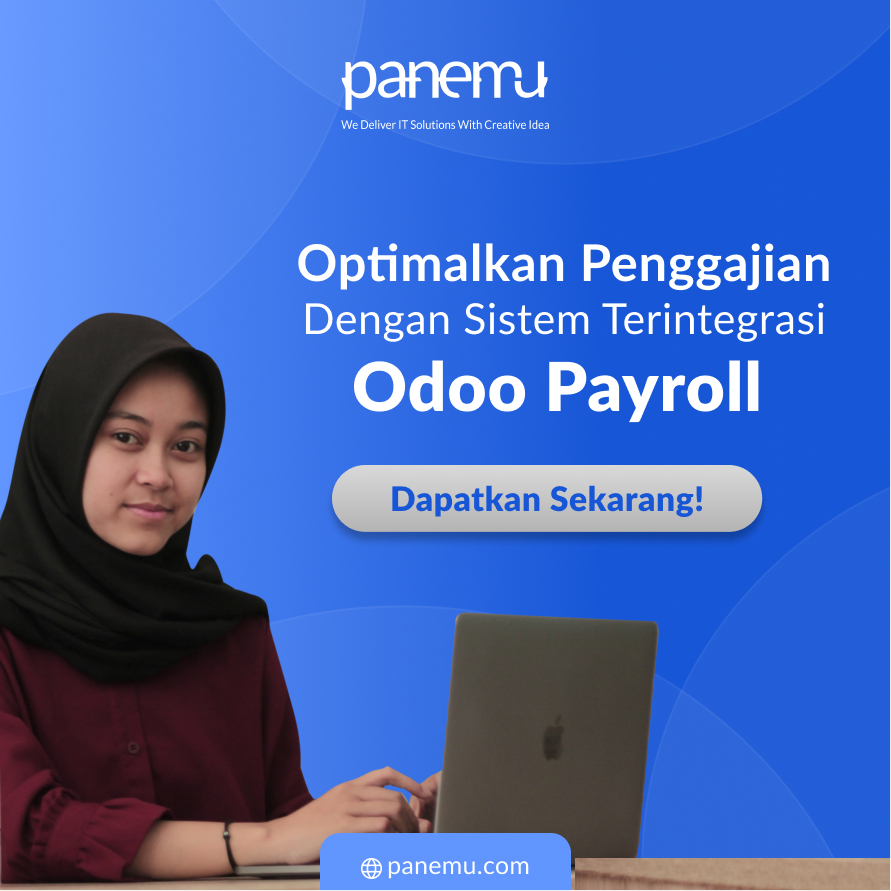Human Resource Management (HRM) has a very vital role in the overall function of the company, especially in managing and developing employee potential. Various challenges such as increasing business complexity, changing employee needs, and global competition encourage HRM to adopt technology as the main support. In this context, Human Resource Information System (HRIS) becomes a very effective solution.
HRIS, or Human Resource Information System, is an information system specifically designed to manage and provide information related to employees. The use of HRIS not only helps HRM in carrying out routine operational tasks such as recruitment, training, and payroll, but also provides strategic support to achieve the company's business goals.
The Story
Since it was first developed in the 1960s, Human Resource Information Systems (HRIS) have undergone significant development. Initially used to manually manage employee data, HRIS has now become more sophisticated and can be integrated with various other systems.
Along the way, HRIS has undergone a technological evolution that includes the transition from a manual approach to the automation of human resource management processes. In the early stages, HRIS may only cover basic functions such as maintaining employee personal records and payroll. However, over time, technological developments have enabled a significant increase in HRIS capabilities.
The integration of HRIS with the latest technologies, such as artificial intelligence (AI) and data analytics, has expanded its functionality. Now, HRIS can provide analytical information on employee performance, assist in human resource planning, and support an organization's strategic decisions.
The application of cloud computing concepts has also become a major trend in HRIS development, enabling easier access and flexibility in employee data management. In addition, HRIS today can also be integrated with e-learning platforms, performance management systems, and other collaboration solutions, creating a holistically connected ecosystem.
With these developments, HRIS no longer focuses solely on administrative tasks, but also acts as a strategic tool to increase productivity, manage talent, and support organizational growth. The journey of HRIS technology development reflects the constant evolution in the way organizations manage their human resources, providing greater benefits in this digital age.
Operational Functions of HRIS:
Recruitment:
HRIS helps streamline the recruitment process by managing job postings, applicant tracking, and resume databases.It can automate candidate screening and facilitate communication between hiring managers and candidates.
Training:
HRIS assists in planning, organizing, and tracking employee training programs. It can maintain training records, schedule sessions, and assess the effectiveness of training initiatives.
Administration:
HRIS automates routine administrative tasks such as time and attendance tracking, payroll processing, and benefits administration. It helps ensure accuracy and efficiency in managing employee records and compliance-related documentation.
Strategic Functions of HRIS:
Human Resource Planning:
HRIS provides data and analytics for forecasting workforce needs and identifying skill gaps. It helps in long-term workforce planning, ensuring that the organization has the right talent to achieve its strategic objectives.
Organizational Development:
HRIS supports organizational development initiatives by tracking employee performance, identifying areas for improvement, and facilitating succession planning.It can also aid in change management efforts by providing insights into the impact of organizational changes on the workforce.
Performance Management:
HRIS helps automate performance appraisal processes, making it easier to set goals, conduct evaluations, and provide feedback. It facilitates the continuous monitoring of employee performance, allowing for timely recognition and development interventions.
Employee Engagement:
HRIS can include tools for measuring and analyzing employee engagement, helping HR professionals understand the factors that contribute to job satisfaction and commitment. It may include features such as surveys and feedback mechanisms to gather employee opinions and sentiments.
Analytics and Reporting:
HRIS provides robust reporting and analytics capabilities, allowing HR professionals to derive insights from HR data. This supports strategic decision-making by providing data on workforce trends, turnover rates, and other key performance indicators.

The Benefits :
1. Increased Efficiency and Effectiveness of HRM Work:
- Automation: HRIS automates various HR processes, such as payroll, recruitment, and benefits administration. This reduces the manual workload on HR professionals, allowing them to focus on more strategic tasks.
- Streamlined Communication: HRIS facilitates better communication within the HR department and between different organizational levels. This leads to improved coordination and efficiency in handling HR-related tasks.
2. Improved Quality of Employee Information:
- Centralized Database: HRIS provides a centralized database for employee information, ensuring data consistency and accuracy. This reduces errors associated with manual data entry and enhances the reliability of employee records.
- Data Security: HRIS systems often include robust security features, safeguarding sensitive employee information from unauthorized access and ensuring compliance with data protection regulations.
3. Support for Better Decision-Making:
- Data Analytics: HRIS allows for the generation of various reports and analytics related to employee performance, engagement, and overall HR metrics. This data-driven approach enables HR professionals and management to make informed decisions based on real-time insights.
- Trend Analysis: By analyzing historical HR data, organizations can identify trends and patterns, helping them anticipate future needs, make strategic workforce planning decisions, and respond effectively to changes.
4. Increased Employee Satisfaction:
- Self-Service Portals: HRIS often includes self-service portals that empower employees to manage their personal information, access relevant HR documents, and even participate in certain HR processes. This autonomy contributes to a positive employee experience.
- Timely and Accurate Information: With HRIS, employees can access timely and accurate information about their benefits, pay, and other HR-related matters, leading to increased transparency and satisfaction.
5. Cost Savings:
- Resource Optimization: Automation of routine HR tasks reduces the need for manual intervention, leading to cost savings in terms of time and labor.
- Compliance Management: HRIS helps organizations stay compliant with labor laws and regulations, minimizing the risk of legal issues and associated costs.
6. Scalability:
- Adaptability to Growth: HRIS systems are often scalable, allowing organizations to adapt and expand their HR processes as the company grows. This ensures that the HR infrastructure can support changing workforce needs.
One of the recommended HRIS software is Odoo.
Odoo is an open-source business platform that provides various integrated application modules to manage various aspects of business, including the Human Resources Information System (HRIS). Odoo HRIS offers various features to help companies effectively manage their human resources, such as:
- Employee management, including recruitment, onboarding, performance assessment, and employee development.
- Payroll management, including salary, taxes, and benefits.
- Absence and attendance management.
- Training and development management.
- Safety and health management.
Implementing Odoo HRIS can provide various benefits for companies, including:
- Increased efficiency and productivity. Odoo HRIS can help companies automate various HR tasks, allowing HR personnel to focus on more strategic tasks.
- Improved data accuracy. Odoo HRIS has a centralized data management system, allowing employee data to be managed more accurately and organized.
- Enhanced decision-making. Odoo HRIS provides various reports and analyses that can help companies make more informed decisions.
- Improved legal compliance. Odoo HRIS can assist companies in complying with various labor regulations.
- Increased employee satisfaction. Odoo HRIS can help companies provide a better employee experience, thereby enhancing employee satisfaction.
In conclusion, the role of technology, especially through an AI-enriched HRIS such as Odoo HR, is crucial in helping HRM overcome various challenges and achieve the company's business goals. If you are interested in implementing Odoo HR, do not hesitate to contact us now, and we will be happy to give you a free demo of Odoo HR.

